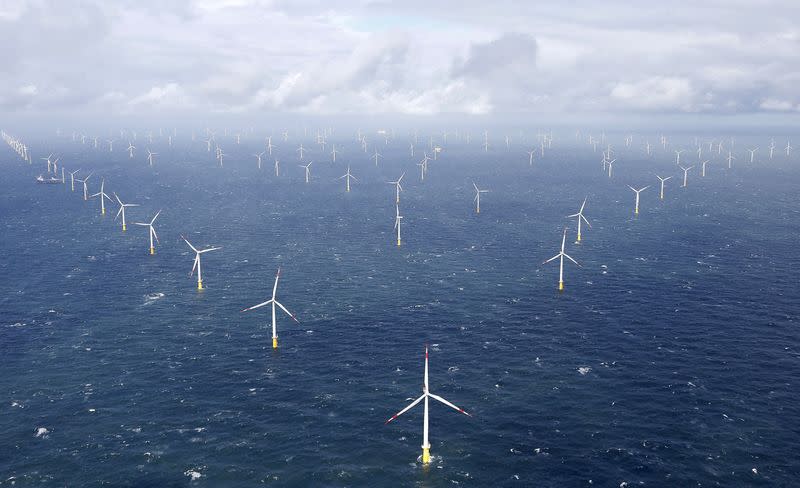Germany set to overhaul subsidy regime for renewable energy- document

By Markus Wacket and Riham Alkousaa
BERLIN (Reuters) - Germany's coalition government is set to overhaul the way renewable energy is subsidised so that power producers would get one-off support for their investment costs instead of a guaranteed price for power they produce, a finance ministry document showed on Friday.
A shift to investment subsidies would mark a significant change in Germany's renewables market and would seek to make the industry less dependent on government support.
It means operators would receive a one-time grant to build renewable plants but they would need to sell their electricity based on their own market calculations, bearing significantly higher financial risks.
"The goal is to shift the expansion of new renewable energy sources to investment cost subsidies," according to the document, part of the ruling coalition's deal for next year's budget agreed on Friday.
The current subsidy regime, introduced some 24 years ago, has made it easier for companies to make investment decisions and to secure favourable loans.
The 20-year guaranteed price for solar, wind and biogas energy producers selling their power into the grid has boosted Germany's renewables expansion as Berlin aims to cover 80% of its electricity needs with renewable energy by 2030.
The planned reforms, whose exact timeline has not yet been specified, are part of a government goal to expand renewable energy in the future without subsidies, and to fully integrate renewables into the market, the document showed.
The subsidies have been long criticised by the liberal FDP party, a junior coalition partner, which says 20-year subsidies for renewables made no sense since wind and solar are expected to become dominant in Germany's energy market by then.
"This shift to investment cost subsidies for renewable energy is a true revolution in energy policy," FDP deputy parliamentary group leader Lukas Koehler told Reuters.
Coverage from renewable energy sources rose to 58% of Germany's electricity consumption in the first half of the year, preliminary data from utility association BDEW and the Centre for Solar Energy and Hydrogen Research (ZSW) showed on Monday.
Economy Minister Robert Habeck said the government would test various models for the subsidy shift, which has been criticised by the renewable energy industry and other partners in the ruling coalition.
"The radical switch to investment cost subsidies risks market uncertainty and investment reluctance, which could massively endanger ambitious expansion goals," said Simone Peter, head of Germany's renewable energy lobby BEE.
(Reporting by Riham Alkousaa and Markus Wacket; Editing by Miranda Murray and Jane Merriman)

 Yahoo Finance
Yahoo Finance 